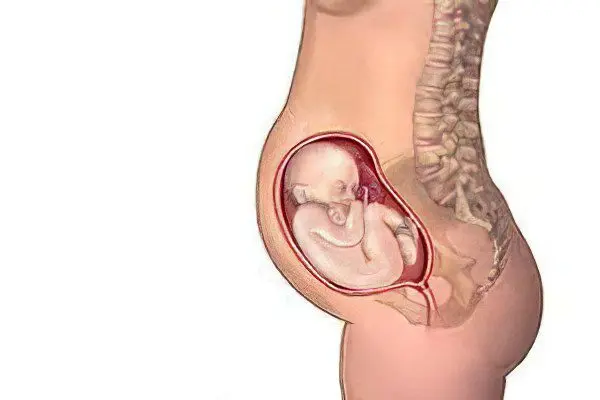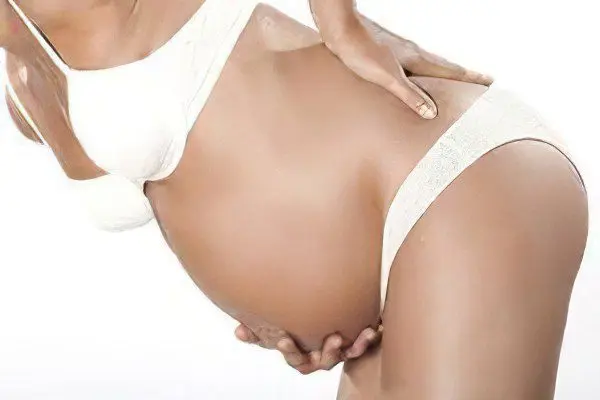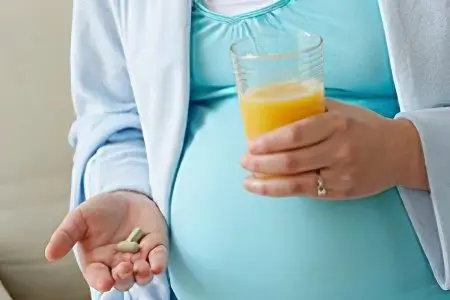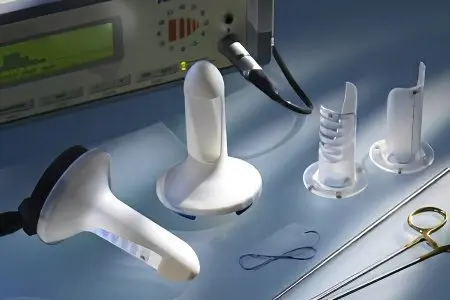Contents
Hemorrhoids during pregnancy is a pathological change in the blood vessels in the rectum. As a rule, this disease occurs due to stagnation of blood in the veins and the formation of hemorrhoids – expansion of the veins in the anus. In proctology, there is a division of this type of disease into primary and secondary hemorrhoids. For the period of pregnancy, primary hemorrhoids are typical, which appears due to the increased pressure of the uterus on the pelvic organs and the rectum.
Signs and symptoms of hemorrhoids during pregnancy

Changes in hemorrhoidal veins in pregnant women do not occur at once. There are several stages of diseases, each of which has its own signs.
1 stage
At the initial stage of hemorrhoids, symptoms such as:
Feeling uncomfortable when going to the toilet;
Feeling pain in the anus during bowel movements;
There may be blood in the stool.
2 stage
In the absence of treatment at the first stage, the disease progresses to the second stage. This may be indicated by signs such as:
The appearance of external hemorrhoids, which eventually disappear;
Atypical discharge from the anus and the itching caused by this phenomenon.
3 stage
For the third and fourth stages of the disease, the following become characteristic:
Strengthening of painful sensations that disturbed in the previous stages;
External nodes on the anus do not disappear on their own;
An increase in body temperature during inflammatory processes caused by the appearance of cracks in the rectum;
Severe bleeding from the anus.
Reason to see a doctor
Considering that the timely adoption of measures to eliminate pathological changes in the veins in the rectum can significantly alleviate the condition and reduce the risk of bleeding or other complications, one should carefully consider the appearance of the following symptoms indicating the presence of the disease:
Burning and itching, which are aggravated by wearing tight underwear, walking or moving;
Pain that occurs when visiting the toilet;
Drawing pains, in some cases radiating to the back or lower back;
The presence of blood in the stool;
The appearance of nodules in the anus, which eventually disappear, but after constipation or weight lifting appear again.
In some cases, similar symptoms may indicate the presence of other pathologies, such as tumors and inflammation. Therefore, it is important to state all the disturbing moments to the attending physician and undergo a detailed examination by a proctologist.
Causes of hemorrhoids during pregnancy

The main reason for the appearance of hemorrhoids is their overflow with blood due to the increased load on the pelvic organs. In addition, the disease may appear for the following reasons:
Changes in the digestive process and associated constipation;
Pressure of the fetal head on the rectum in the last trimester;
The flow of blood to the pelvic organs, causing overflow of venous plexuses in the rectum.
In addition to these reasons, there are several factors that affect the risk of hemorrhoids in pregnant women. These include:
Low mobility, causing a deterioration in the outflow of blood from the lower part of the body;
A history of chronic constipation;
A two-stage defecation process, when the bowel is released in two approaches with an interval of up to 1 hour;
Protracted indigestion, expressed by diarrhea for several days;
Eating an unlimited amount of too salty or spicy food;
Lifting heavy objects.
How to avoid hemorrhoids during pregnancy?
To avoid hemorrhoids during pregnancy or reduce the risk of progression of an existing disease, you must adhere to the following rules:
Compliance with a diet aimed at preventing the occurrence of constipation and fermentation processes in the intestines that can cause diarrhea;
Physical activity, which helps to cope with the stagnation of blood in the blood vessels of the small pelvis and in particular in the rectum;
Refusal to stay in a sitting position for a long time, as this can cause additional stress on the venous plexus and cause it to overflow with blood.
Are hemorrhoids dangerous during pregnancy?

The danger of hemorrhoids during pregnancy lies not only in the constant presence of discomfort. At the initial stage of the disease, pain during bowel movements can provoke the expectant mother to go to the toilet less often, which is why such phenomena as constipation and the appearance of microtraumas on the intestinal mucosa caused by the passage of too hard stool masses are likely to occur.
This inevitably leads to the occurrence of inflammatory processes, which, in the absence of timely therapy, can affect other internal organs. Among other things, constipation contributes to the accumulation in the body of a pregnant woman of toxic substances that affect the fetus in a bad way.
In addition, hemorrhoids during pregnancy can cause pinching of hemorrhoids. To eliminate this pathology, surgery may be required. After the end of pregnancy, pain in the anus in many women becomes a fairly common occurrence, since with the appearance of factors favorable for the development of the disease, exacerbation is inevitable.
What is the treatment for hemorrhoids during pregnancy?
When choosing a method for treating hemorrhoids during pregnancy, it is necessary to be guided not only by the type and degree of development of the disease, but also by the fact that drugs and procedures should not adversely affect the course of gestation.
There are many therapies approved for use during pregnancy:
Chair adjustment
It is important to prevent constipation. Therefore, first of all, you should adjust the menu:
heavy dishes are excluded – fried, fatty, spicy;
from drinks, preference should be given to green tea, natural juices and compotes, herbal teas;
limit the number of pastry products;
priority is given to vegetable dishes and whole grains;
increase the amount of fruits and berries;
fermented milk products – cottage cheese, kefir, milk, cheeses should become an obligatory component of the menu;
the amount of water drunk per day should be at least 1,5 liters.
Hygienic procedures

To prevent the development of infection in the anus, it is recommended to wash the anus with warm water and soap after each trip to the toilet. In the presence of external nodes, this must be done carefully. For wiping, it is better to use special disposable wet wipes for intimate hygiene or any other that do not contain alcohol and fragrances. Ordinary toilet paper in the presence of hemorrhoids is undesirable for use, as it is not soft enough. Linen should be cotton, soft and not too tight. Thanks to this, a maximum feeling of comfort and protection against the spread of infection is achieved.
The use of baths with various herbs must be completely excluded. Despite the fact that many folk remedies can help treat hemorrhoids, the risk of infection entering the genital tract through warm water is quite high. It is especially important to consider this fact during pregnancy.
Medication use
To eliminate symptoms such as pain, constipation, inflammation and pathological dilation of the vessels of the rectum, it becomes necessary to use specialized medications. During pregnancy, preference is given to such products as creams and ointments, gels and suppositories. Self-selection of drugs to eliminate symptoms is highly undesirable, since when they are taken, there is a high probability of harming the fetus.
What is commonly used to treat hemorrhoids in pregnancy:
Drugs that increase the tone of blood vessels. With their use, the permeability of the walls of blood vessels increases significantly and the outflow of lymph improves. Due to this effect, the development of the disease is inhibited, the inflammatory processes stop.
Laxative drugs are used if there are persistent problems with bowel movements. The composition of this group of drugs should include mainly natural ingredients, for example, an extract from prunes. The use of any laxative must be approved by a physician.
Rectal suppositories and ointments allowed during pregnancy are the main group of medicines that are approved for use during pregnancy. They are based on components that eliminate pain and relieve inflammation. In addition, there are local preparations specially designed for pregnant women with a hemostatic effect. Candles allowed for pregnant women: Natalsid, Olestezin, Neo-Anuzol and Posterizan
Vitamin complexes for pregnant women are used to improve the general condition of the body, strengthen blood vessels. As a rule, the composition of these funds includes an increased amount of vitamins C and P.
Microclysters with a volume of not more than 40 ml. There are two types of microclysters: to soften the stool with oils and to eliminate inflammatory processes with medicinal herbs. Oil microclysters not only soften the contents of the rectum, but also have an enveloping effect. They prevent the appearance of microtraumas during defecation and strengthen the walls of blood vessels due to the vitamins contained in the oils. Microclysters with decoctions of chamomile and calendula help relieve inflammation and irritation of the rectum.
Operative and minimally invasive methods of treatment

This type of treatment is used when bleeding occurs, which usually occurs in stages 3 and 4 of the disease. When carrying out manipulations to eliminate hemorrhoids using surgical methods of treatment, anesthesia is necessarily used. In the acute course of the disease, this method is of little use due to the high likelihood of complications.
What procedures are included in the number of procedures for the prompt elimination of symptoms of hemorrhoids, approved for use during pregnancy:
Rectoanal lifting – suturing of hemorrhoids. After the introduction of anesthesia, the doctor pulls the fallen nodes to their normal position with the help of an instrument and special threads. Recovery after this procedure lasts up to 6 weeks.
Ligation of hemorrhoids is performed only at stages 1 and 2 of the disease. The essence of the procedure is to pull the base of the node with a latex ring. Within about a week after the procedure, the node dies, it is disconnected from the wall of the rectum.
Sclerotherapy is performed in case of high risk of bleeding at any stage of the disease. With the help of this procedure, the flow of blood to the hemorrhoid is stopped, as a result of which it dies.
Photocoagulation is carried out using special equipment. This method is based on heating the hemorrhoids with an infrared emitter, as a result of which they die. Suitable for use in stages 1 and 2 of the disease.
Desarterization is indicated for the treatment of hemorrhoids at stages 1 and 2, but in combination with rectoanal lifting it can also be used at subsequent stages of the disease. The procedure is performed using a special instrument under the control of an ultrasound machine. The main advantage of this treatment method is the absence of incisions and the possibility of suturing all nodes in one procedure.
Hemorrhoidectomy – removal of nodes using a conventional or laser scalpel. The disadvantage of the procedure is the long period of tissue recovery. In recent years, the use of a laser has become more popular due to the fact that when performing an operation using it, healing occurs much faster.
Only if there is complete information about the condition of the woman and the fetus, the doctor can confidently judge the appropriateness and safety of the methods used. This is the basis for the successful treatment of hemorrhoids, during which there will be no negative consequences for the health of the expectant mother and her baby.









